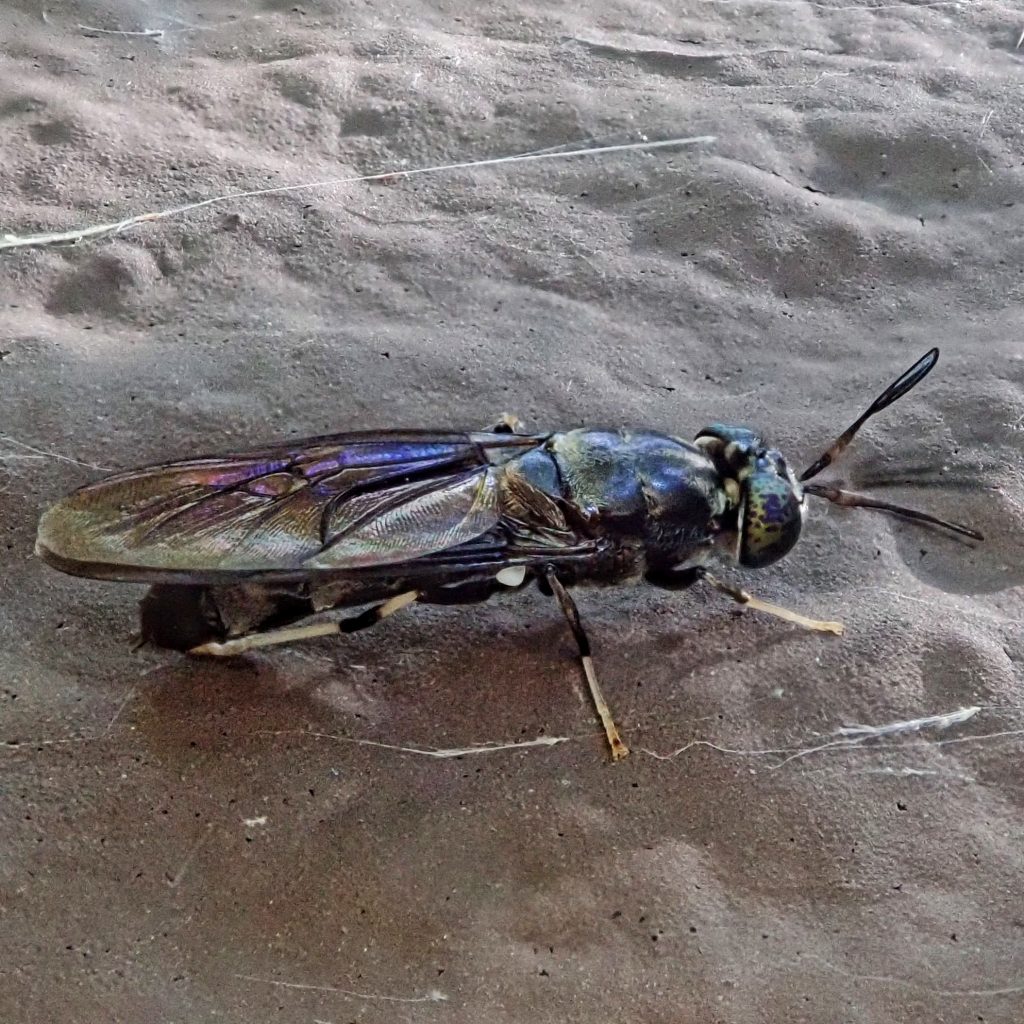
This wasp mimic is a very interesting soldier fly (family Stratiomyidae). For one thing the mimicry extends to having antennae that are very long for a fly (4.5mm in this specimen, almost a third of the body length). But even more interesting is that they have translucent squares in the first segment of the abdomen, which simulates a ‘wasp waist’. And it worked on me, at least until I saw it up close through the viewfinder of my camera and noticed the big, round, fly eyes.
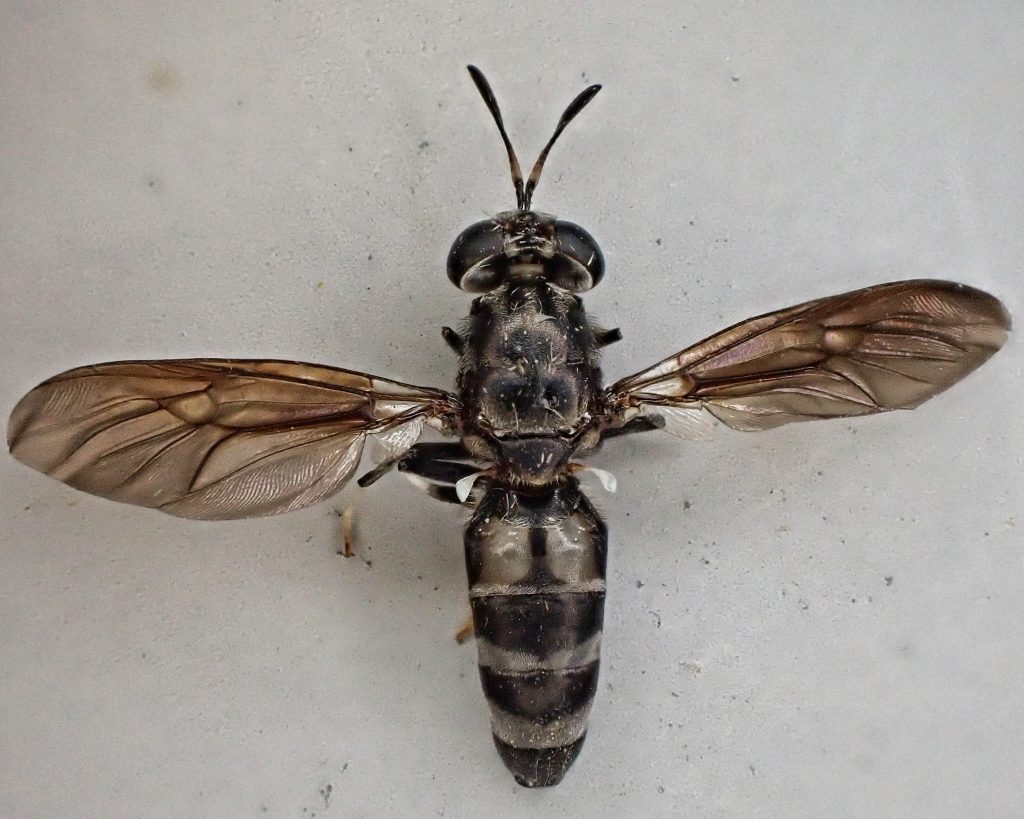
Beyond the fascinating mimicry is a fly that is extremely beneficial. The larvae are consumers of a wide variety of decomposing organic material, and they usually eat twice their body weight in food every day. This makes them excellent composters, and their fondness for fecal material has given them the colloquial name of privy flies, since they were frequent denizens of outhouses in the days before indoor plumbing.
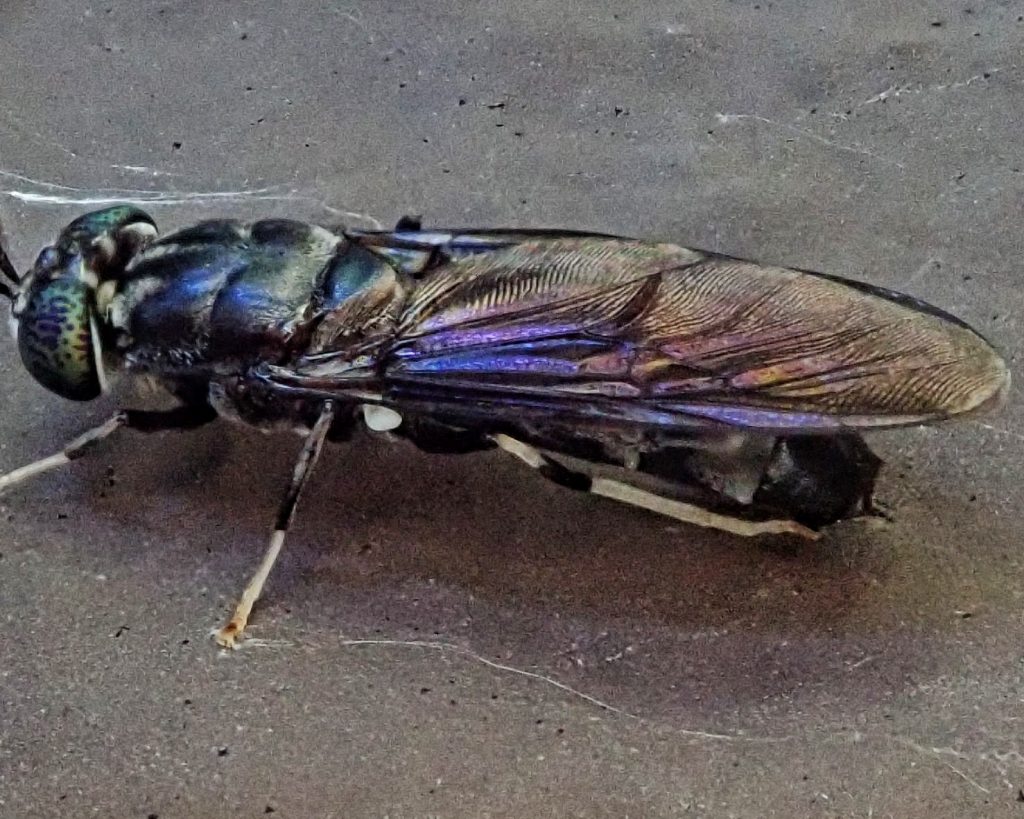
But they are not picky about the poop they eat, and have become a friend to dairies and other livestock agribusinesses for their ability to process massive amounts of manure. And they have the added benefit of making their larval dining rooms less attractive to pest species like house flies. They accomplish this by churning the waste material and making it more liquid, and by blocking access to food sources.
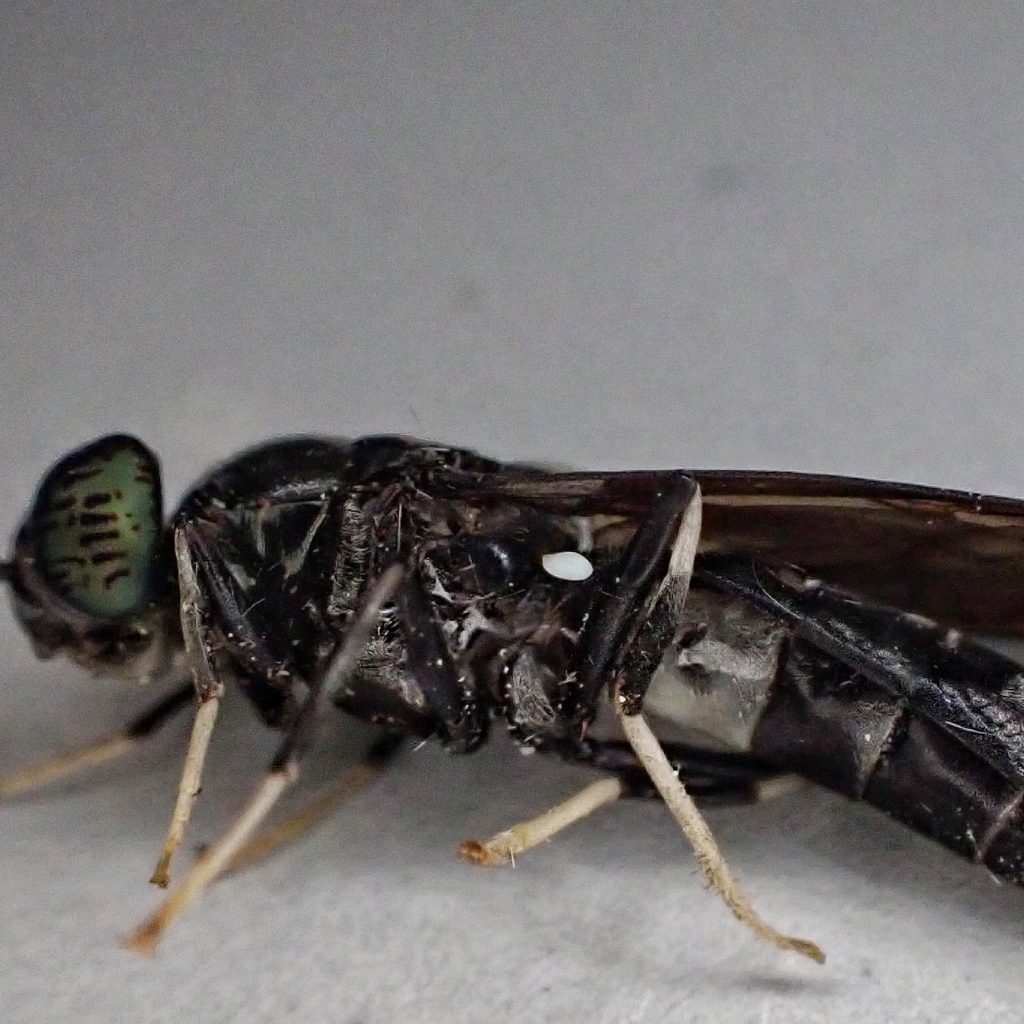
They also have been used as a supplemental protein source in feed. It’s a rather brilliant idea, albeit a bit disgusting to our sensibilities, since the larvae of Hermetia illucens could be fed on the waste products of the livestock, reducing the environmental impact by turning manure into protein, and then they, as well as the adults that produced them, could be dried, sterilized, ground, and fed back to the livestock. And a whole crop can be produced in about a month.
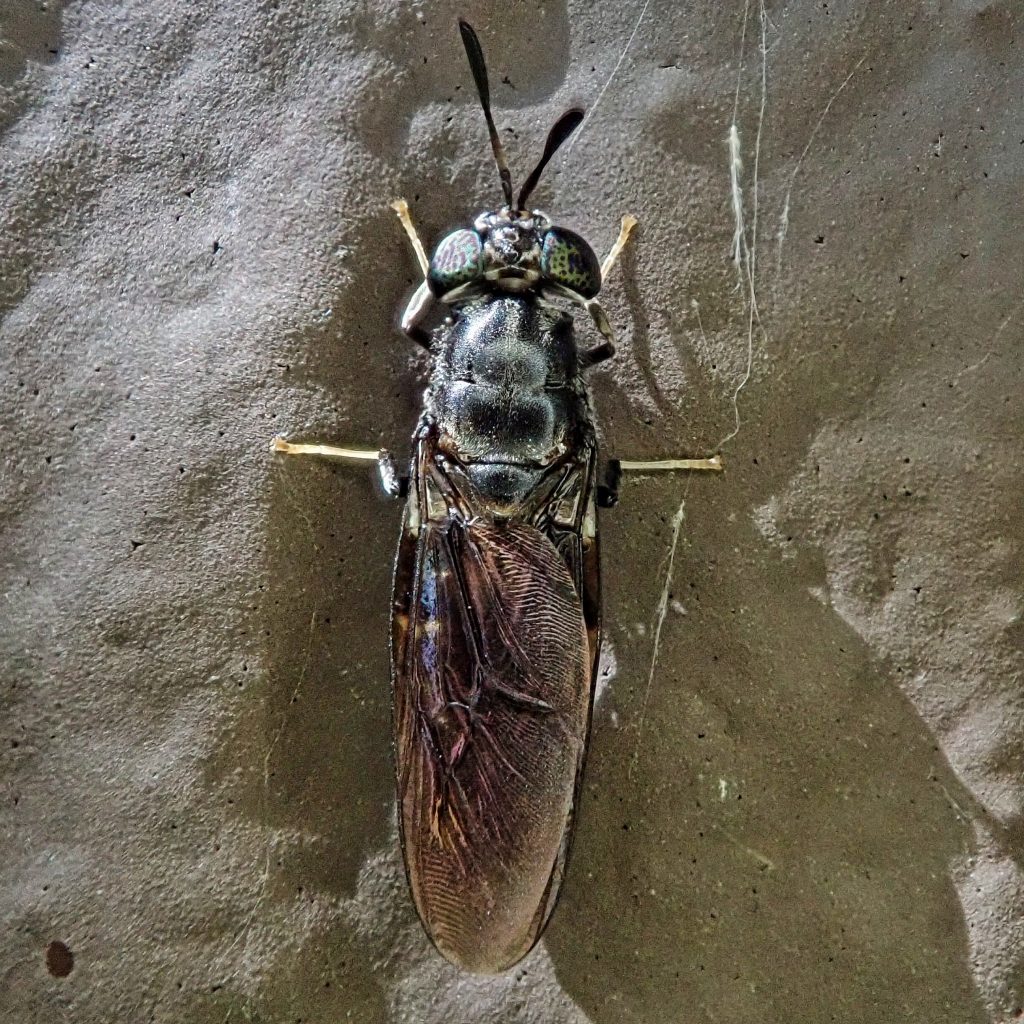
In recent years this has become something of a controversial practice. It had been long assumed that the adults did not feed, and therefore couldn’t be vectors for transmitting diseases and pathogens fostered by those waste products, and that it was therefore safe to have clouds of the adults flying about. This came from early studies that found that adults managed to breed successfully when kept without access to foodstuffs. But a recent study (Bruno et. al.; 2019) found that adults do have a functional midgut, can take in food, do excrete waste products, and live longer, more reproductively successful lives when they have access to high sugar organic material. Which means they can indeed spread pathogens to areas outside of the immediate area where they are depositing eggs, and will probably do so in their search for food.
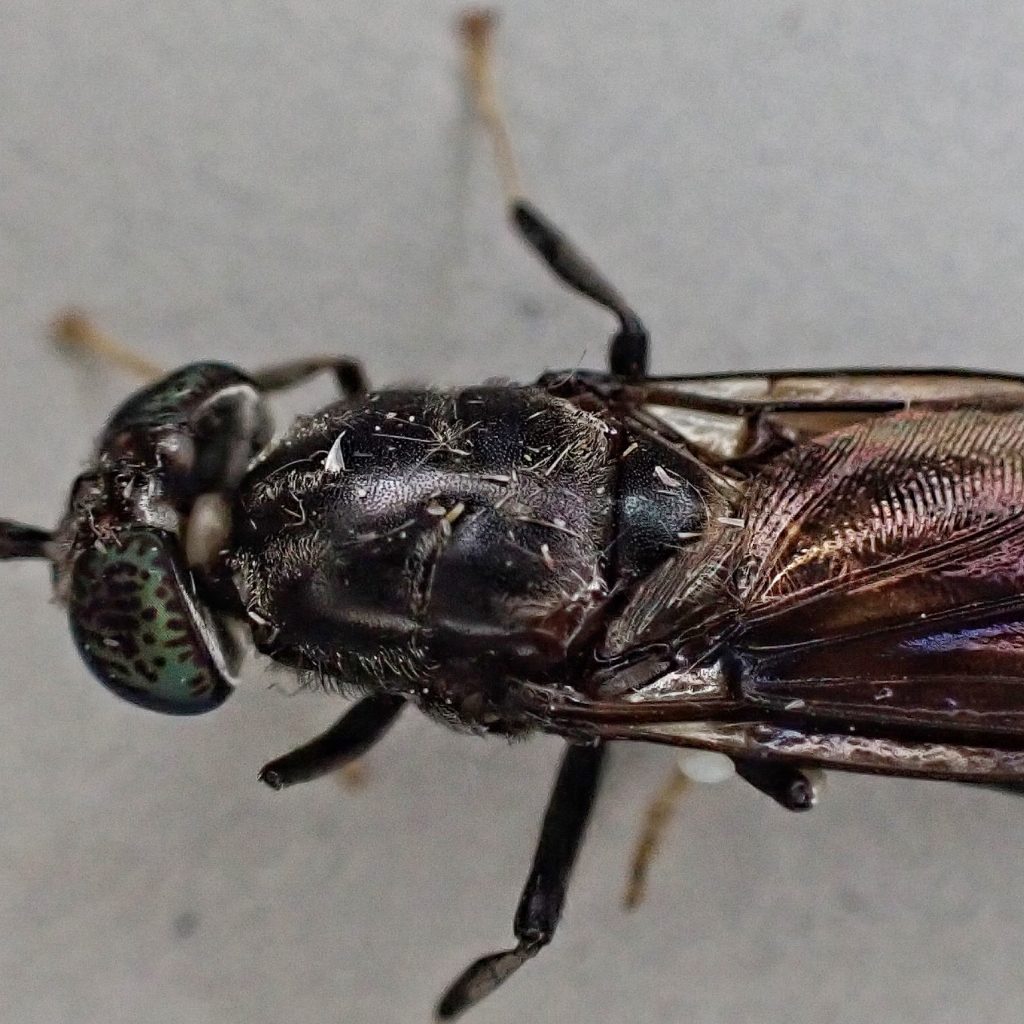
But Black Soldier flies are still a primarily beneficial, non-pest species that doesn’t bite and helps breakdown waste organic material. This is one of several different species of arthropods that I found hanging out on a shaded concrete wall during the extreme temperatures of last month’s heat dome experience, a congregation that has not been replicated in either numbers or diversity since, even on 90⁰ afternoons.
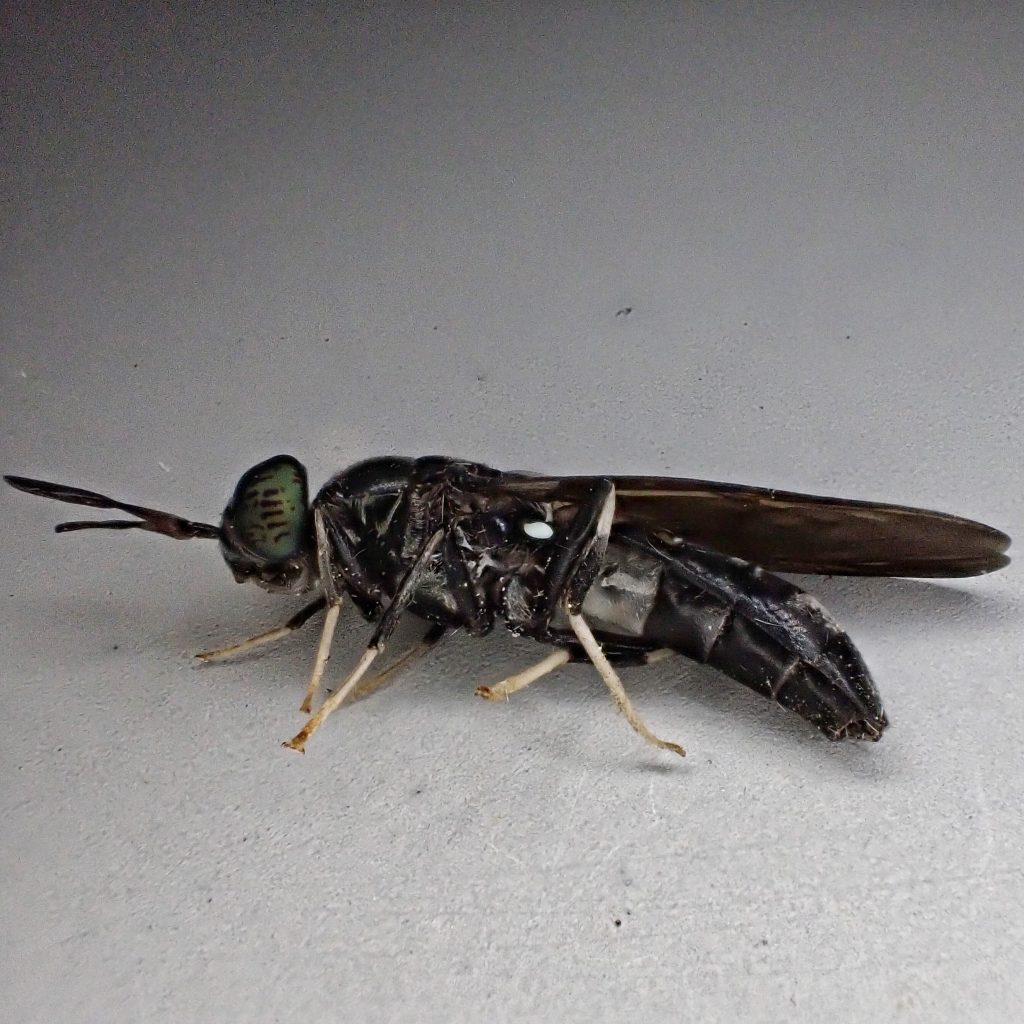
Description-Fairly large (up to 22mm long), mostly black, wasp imitating flies; hairless banded eyes; translucent squares in first segment of abdomen; long (for a fly) antenna; white lower legs (tarsi); purplish sheen to wings.
Similar species– No other soldier flies have the translucent abdominal segments.
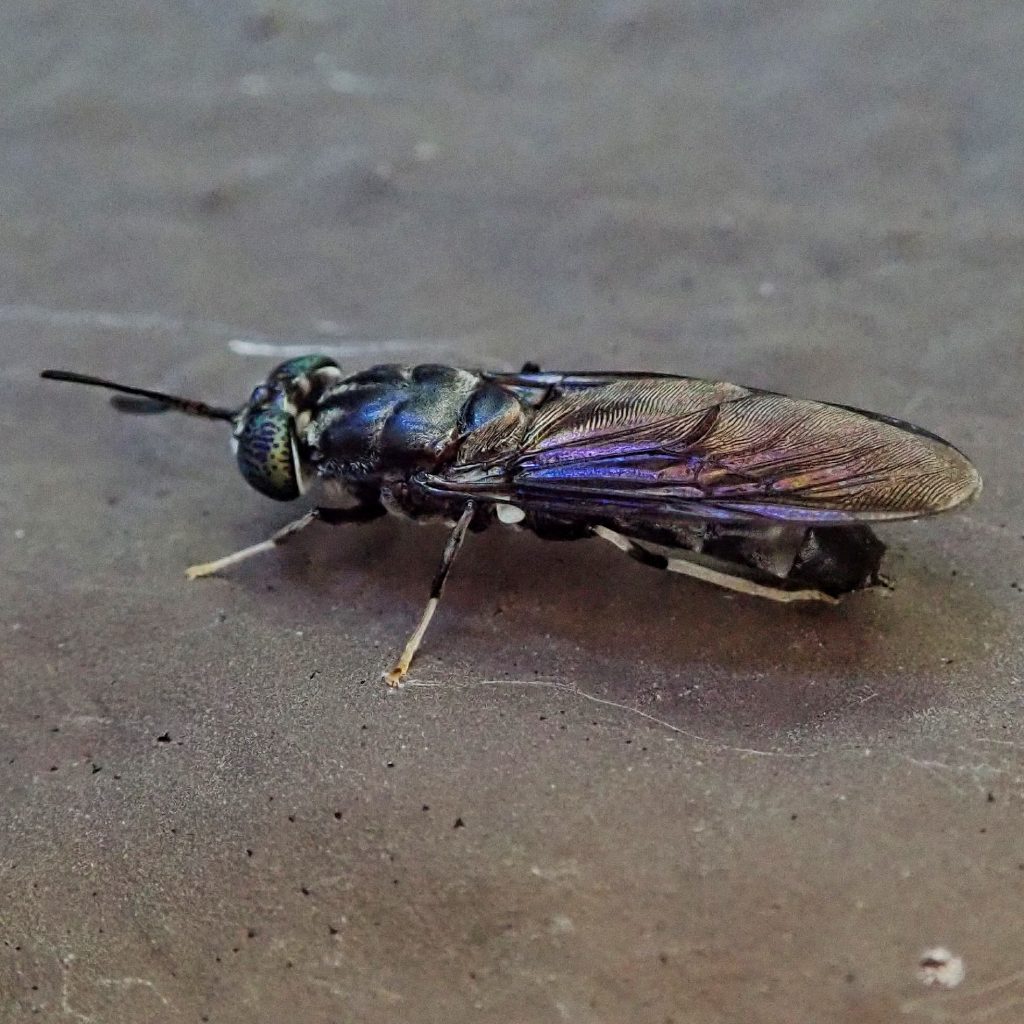
Habitat-Near moist, decaying organic material
Range-Native to Central and South America; now nearly cosmopolitan; primarily found west of the Cascades in our region, although they have recently spread into se Washington.
Eats– Larvae eat decaying organic material of all types; adults may feed on high sugar, decaying organic material.
Eaten by-Larva are vulnerable to a wide variety of insectivores, especially just after hatching, and when crawling to pupate; adults are preyed upon by anything that eats flies; some wasps are parasitoids of the larva.
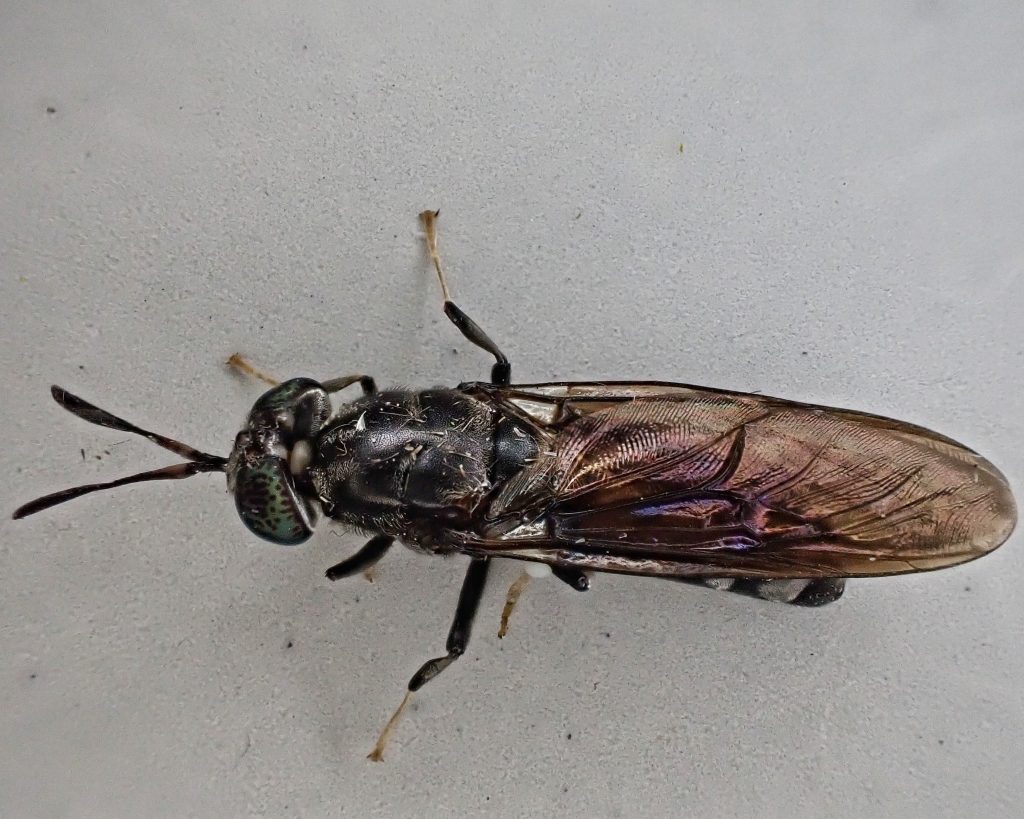
Reproduction– Mates in flight and males form leks near prime ovipositing areas, and sortie after females that come near; roughly 500 eggs are laid near decaying organic material; incubation time is from 4 days to three weeks, depending on the temperature; larvae are off-white darkening to brown; larvae go through all 6 instars in about 14 days and can be up to 27 mm long; pupation happens in nearby dry vegetation, and takes about two weeks; imagos can mate within 2 days of eclosure; adults live less than 2 weeks.
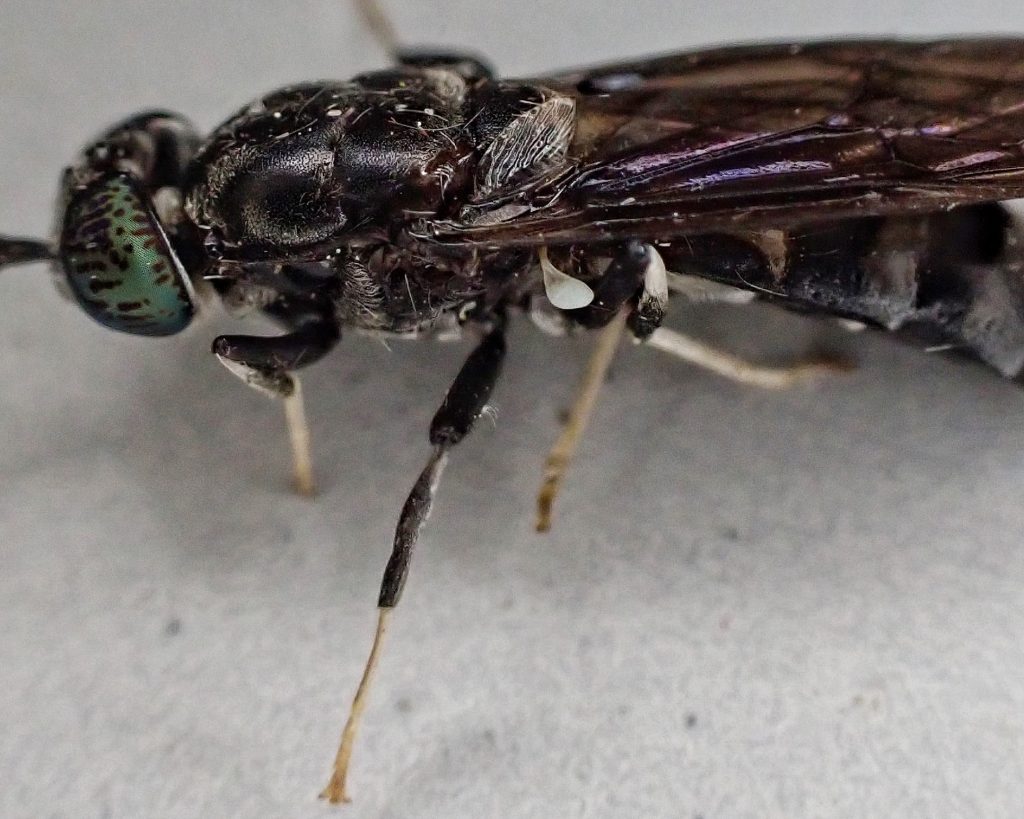
Adults active– May to October
Etymology of names– Hermetia is probably from the Greek god Hermes, the messenger or herald whose winged sandals allowed him to travel easily between earth and Olympus. Linnaeus’ reference is possibly to the fact that Hermès was considered to be the protector of sheep and cattle, and this genus is common around livestock. The specific epithet illucens is from the Latin for ‘illuminating’ and refers to the translucent ’windows’ on the abdomen.
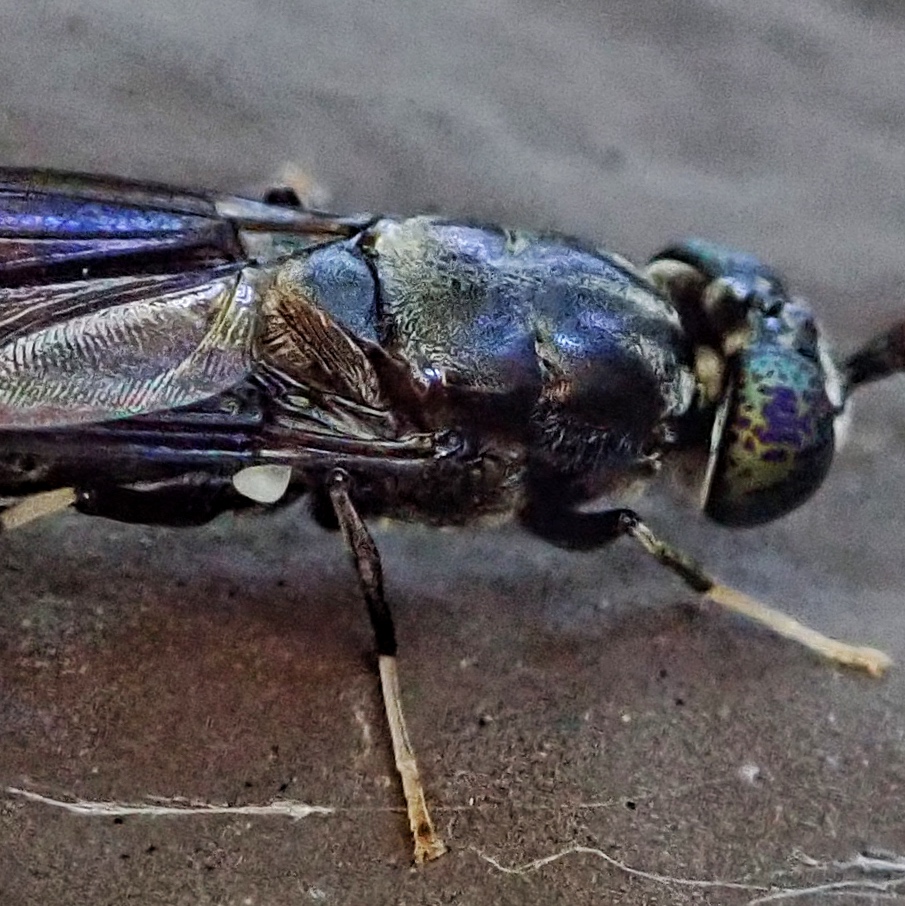
https://aggie-horticulture.tamu.edu/galveston/beneficials/beneficial-51_black_soldier_fly.htm
https://entnemdept.ufl.edu/creatures/livestock/black_soldier_fly.htm
https://bugguide.net/node/view/7646
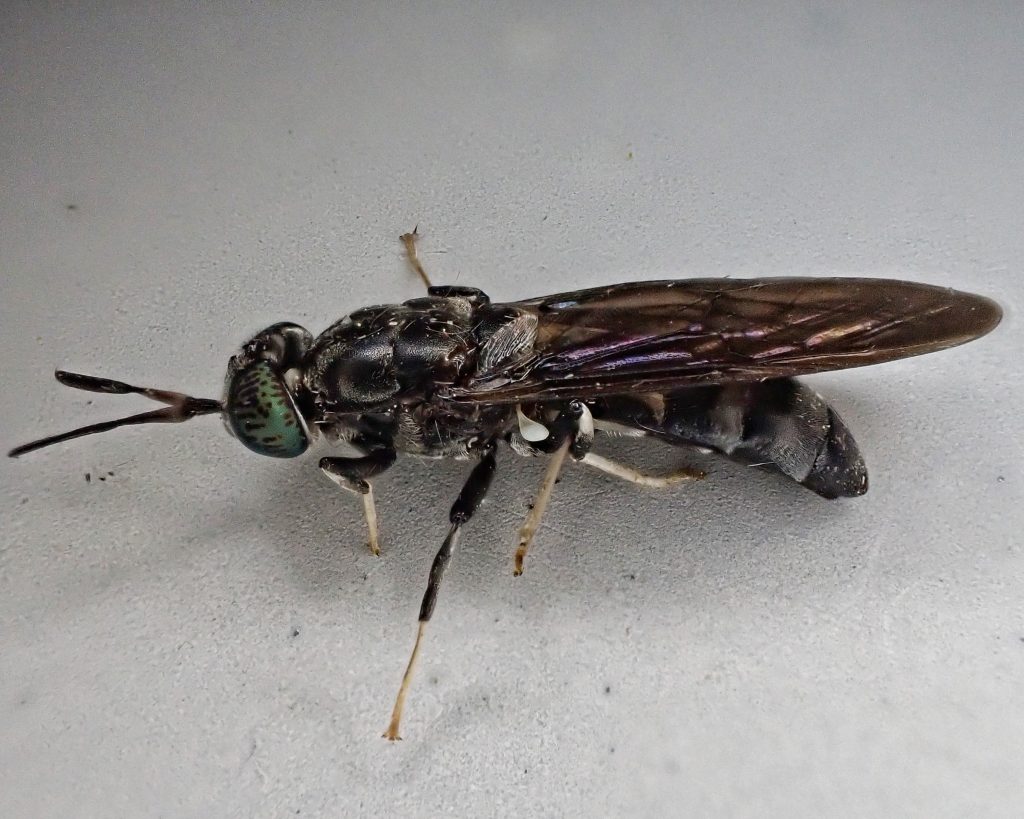
Very interesting profile on this fly! A pleasure to read! Thank you! ☺️